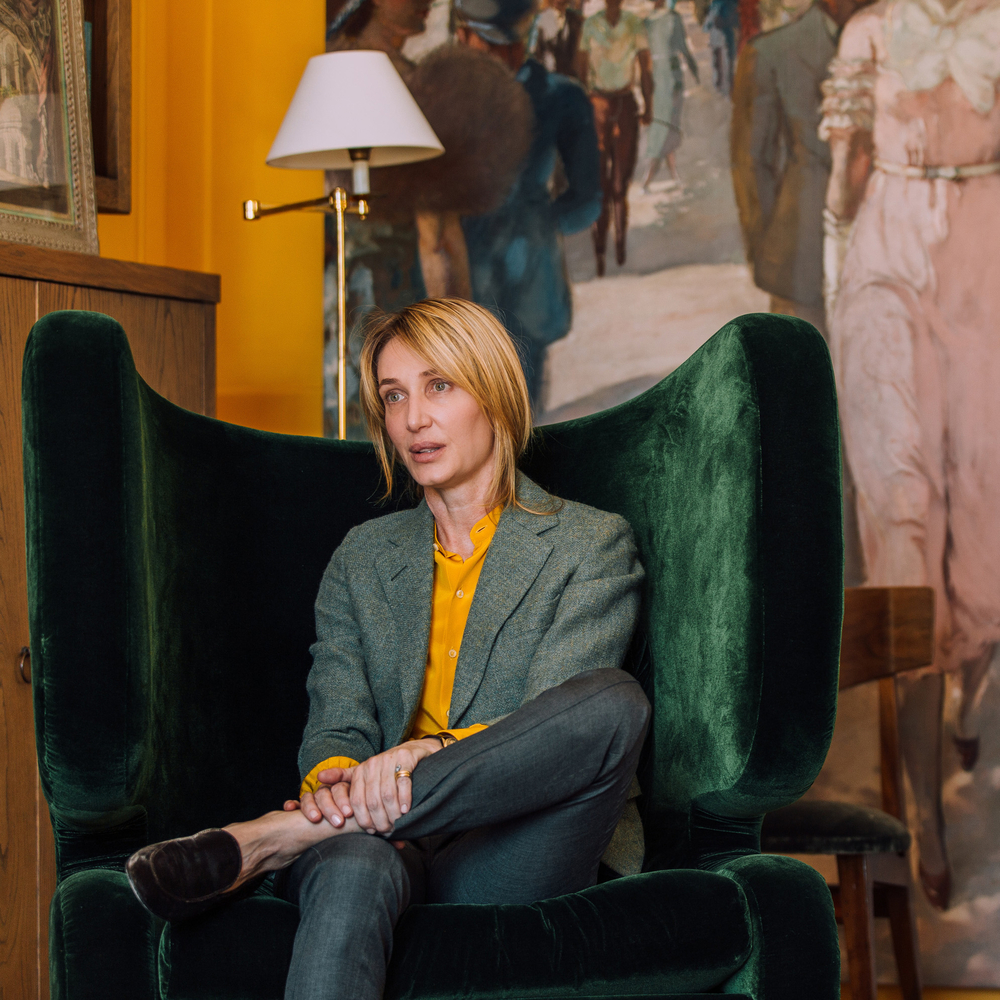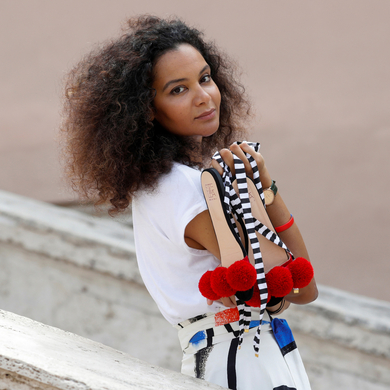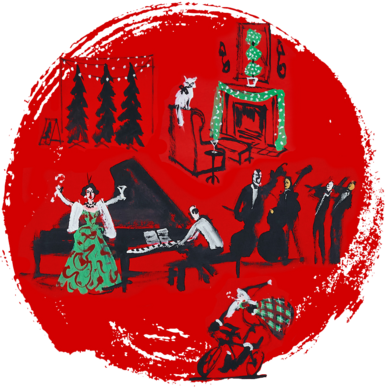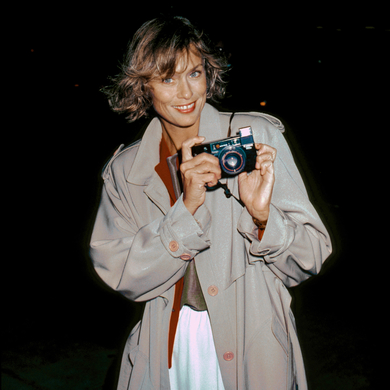The idea of getting dressed up is the absolute opposite of what I want to do. Dressing to impress is counter-intuitive to me, done in the pursuit of creating an image and not because it suits how I feel and the job I need to do. The classic male wardrobe, though, is built on purposeful and versatile dressing—what he needed to wear to go hunting, driving, smoking, dancing, as opposed to mere embellishment. Sir Hardy Amies said it best: “A man should look as if he had bought his clothes with intelligence, put them on with care and then forgotten all about them.” To feel reassured and ready, a men’s-wear-inspired wardrobe is at the heart of everything I wear.
INVEST IN SIMPLICITY
If you want a versatile wardrobe, choose the best fabrics—natural fibers with some weight to them, as well as drape and movement. Avoid anything that imposes its shape on you. It should hint at your figure, not reveal it. Men’s wear is all about texture and small patterns, different weights of fabric, and occasional accents with accessories. That’s what looks best. If a man opts for a very bold suit, he will tend to calm everything else down.
Often, with women’s wear, everything is piled on and on. I don’t like the very big, bold prints that have dominated women’s-wear shows this season. I prefer a silhouette, rather than being a canvas. What you’ll never find in my wardrobe is anything sheer, body-con, or requiring complicated underwear. Fiddling with your clothes is the opposite of being well dressed.



CHOOSE COLOR CAREFULLY
Like most men, I favor navy over black; it has more warmth, it suits more complexions, and it will always photograph better. Black is useful for trousers and shoes, but it requires you to wear a lot of makeup—and typically I don’t. Navy ages better, while black can start to look brown. To that, I add lots of camel and khaki, off-white and cream, and dark reds. It’s a color palette that works for maximum versatility.



FOCUS ON FIT
Fit matters to men. They have the luxury of being offered lots of different measurements, unlike women. The amount of cloth around the sleeves, waist, hips, and thighs can make or break garments; well-fitted clothes always look expensive and more comfortable, so a great local tailor is extremely valuable.
I’ve just had a midnight-blue suit made by my tailor in Soho, in London. It’s fitted to me—but with the codes of men’s wear: a wide peaked lapel on a single-breasted jacket, with horn buttons and deep turn-ups on the trousers. The fabric—a heavy cotton-velvet—is from Scabal, a cloth supplier to Anderson & Sheppard; it’s very robust, with no stretch in it. I’ll still be wearing this suit in 10 years.



CHERRY-PICK FROM THE MEN’S SECTION
If you love that oversize, boyfriend look, then it can work to borrow men’s T-shirts, sweaters, and shirts. But think about what you can learn from men’s wear rather than choosing pieces that aren’t constructed for the female body. Men’s trousers have a much heavier waistband and a lot more cloth in the pockets, and they won’t sit very elegantly on a woman’s hips because the waist-to-hip ratio will be completely off.



BUY LESS—BUT BUY BETTER
The best pair of trousers I own is at least 12 years old. They’re from Chloé and are wide-legged, heavy flannel, charcoal gray, easy to repair, and completely versatile; I wear them with a silk shirt, heels, and a favorite necklace, or with sneakers and a sweater. This is how men’s wear operates: you just need five or six things that you can take up or down. Women’s wear lives off newness to push consumption, while men often store loved clothes. If pieces are well made, they will serve you for years. Buy less and buy better. The more you wear something, the more reasons you find to like it. It will carry a good feeling about it.



Anda Rowland is the director of the bespoke tailoring house Anderson & Sheppard





